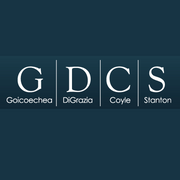Negligent vs. Intentional Personal Injury Claims

If you have a personal injury caused by another party, you are allowed to seek compensation for your damages in civil court. When meeting with a lawyer to discuss your case, they will help you determine whether the incident was an intentional tort—a wrongful action by a person or institution that caused you harm—or a negligent tort—wrongful inaction that led to your injuries. The guide below looks closer at the differences.
Negligent Claims
The concept of negligence is based around the idea that certain people have a duty of care to ensure the safety of others. For example, property owners need to fix, remove, or block off obvious hazards—such as a staircase that is falling apart.
Car accidents are often attributed to negligence. The responsible driver may have been texting or speeding before the collision. Their intent was not to hurt you—and yet, you were injured as a result of their actions; this is considered a “breach” of their duty of care.
To prove negligence, you must not only prove duty of care and breach, but also that the defendant’s failure to do what was expected of them was the cause of your harm. Medical reports from after the accident can prove your injuries, as well as show that they are consistent with your account of events. If you were unable to work following the incident, bank statements that show loss of income are also useful. Damages will usually provide just enough to cover expenses.
Intentional Claims
In some cases, the other person might have intended to cause you pain. For example, they may have hit you, stolen from you, or restrained you against your will. They might have knowingly published something untrue that tarnishes your reputation. This is known as slander.
 Those who are filing for an intentional tort claim will need to show evidence of wrongful intent. Security footage and eyewitness accounts are often the most useful pieces of evidence.
Those who are filing for an intentional tort claim will need to show evidence of wrongful intent. Security footage and eyewitness accounts are often the most useful pieces of evidence.
Due to the heightened nature of the offense, damages for these types of cases are much larger to deter future incidents. Beyond medical bills, they might include loss of wages, pain and suffering, or punitive charges.
Do you wish to pursue a negligent personal injury claim? Turn to Goicoechea, DiGrazia, Coyle & Stanton. Serving northeast Nevada, this Elko, NV-based team has over 100 years of combined experience and offers personalized attention to each client. For a full list of practice areas, visit their website. Call (775) 738-8091 to schedule a consultation.
About the Business
(4 reviews)
Have a question? Ask the experts!
Send your question

